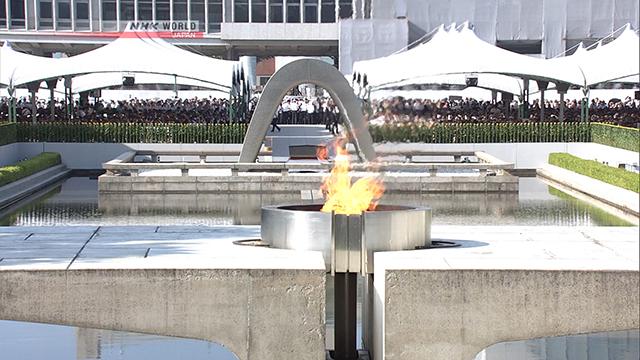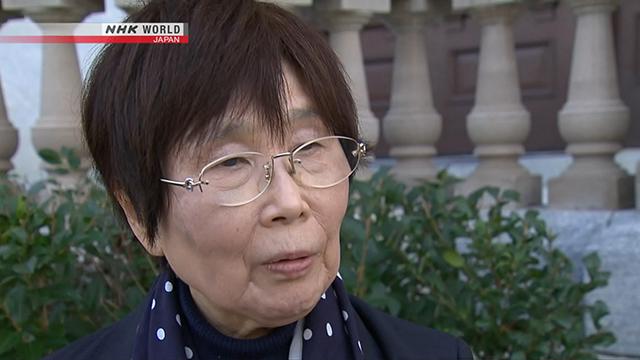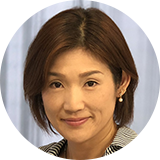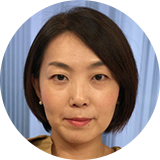Moment of Silence
People in Hiroshima stopped to observe a minute of silence at 8:15 AM, the exact time the bomb flattened the city.


At an annual memorial ceremony, officials placed a list of 314,118 victims in the cenotaph. That includes 5,393 people who died in the past year. People started gathering in the early morning hours, well before the ceremony.
They came to honor the victims and share their hopes for a world without nuclear weapons. One 81 year-old atomic bomb survivor said, "I really appreciate that many young people are offering their sincere prayers."
There were also international visitors who came to offer their support. A visitor from Spain said "Many people died, and families are actually suffering from the past. It should never happen again. Never."
The mayor of Hiroshima recalled the horror of nuclear weapons at the ceremony. "Nuclear deterrence and nuclear umbrellas rely on the destructive power of these weapons to seek to maintain international order by generating fear in rival countries," said Kazumi Matsui.
He said the approach to guaranteeing long-term security is "unstable and extremely dangerous." Matsui also called on Japan's government to play a "proper role" in ridding the world of all nuclear arms. Prime Minister Shinzo Abe said at the ceremony that he wants to lead the way on the issue by obtaining cooperation from countries with and without nuclear weapons.
"Our country is determined to act as a bridge between the two sides and lead the efforts of the international community, as we are committed to the three principles of not producing, possessing or allowing nuclear arms on our territory," he stressed.
Still Long Way to Go
Some progress was made in the past year. But there was also renewed tension when it comes to actually abolishing the weapons.
The Nuclear Weapon Ban Treaty was adopted in July last year at the United Nations, with 122 countries and territories' approving it. But the two nuclear giants -- the United States and Russia -- along with other nuclear powers, boycotted proceedings. So too did countries that fall under the protection of the so-called American nuclear umbrella, such as Japan. At least 50 nations need to ratify the treaty for it to come into effect, but only about a third have done so.

North Korea is, apparently, moving away from nuclear weapons. Last September, Pyongyang tested its sixth device. It also tested missile after missile, which led to a war of words with the US. But as the year progressed, there came an unexpected rapprochement. June saw a historic summit where two leaders agreed to the complete denuclearization of the Korean Peninsula. But exactly what that means is a subject of debate.

Then there's the Iran issue. This May, the United States pulled out of an international agreement meant to curb Iran's nuclear activities.
"We cannot prevent an Iranian nuclear bomb under the decaying and rotten structure of the current agreement," said US President Donald Trump.
The withdrawal led to a spike in tensions with leaders trading threats. Then, in a surprise statement, Trump came out and said he's open to talks with his Iranian counterpart without preconditions. The White House has since walked that back, making a meeting seem unlikely.
Survivors continue to raise their voices
For decades, Japan's hibakusha have been front and center in the campaign to rid the world of nuclear weapons. Their average age is now over 82. But that hasn't slowed them down.

Last year's Nobel Peace Prize went to ICAN, an international anti-nuclear weapons NGO that campaigned for a landmark treaty to outlaw nuclear weapons.
Setsuko Thurlow, a Hiroshima survivor, is one of the group's leading figures. She became the first atomic bomb survivor to address the award ceremony, last December.
She described nuclear weapons as "not a necessary evil, but the ultimate evil."
Thurlow continues to travel the world spreading her message. But, given the history of the war, that isn't always easy.
At one event in New York, a student brought up Japan's wartime atrocities, pointing out that Japan was responsible for killing innocent people across Asia.
Thurlow replied that she is mindful of that as she talks about Hiroshima and Nagasaki. But, she said: "Japan was a victimizer, as well as a victim. There is no side that's more in the right or wrong. Killing is wrong for both sides."
Underlying her anti-nuclear message is a simple one -- the need for people of different backgrounds from different countries to respect one another and share the value of human life.

Keiko Ogura's efforts are similar. She also survived the Hiroshima bombing. Last year she traveled to the US when tensions with North Korea were spiking.
She spoke with new members of the American military --people who could end up seeing war firsthand. She told them to remember the horrors of nuclear weapons and not to play any part in their use.
One cadet in the audience was moved. "Learning about your experience and the people and the suffering you went through, gives me a whole different perspective on the topic," he said.
Ogura wants to continue to work as long as she can. "Regardless of your position, it's important to cherish life and to love others without regard for the boundaries that separate countries," she said.


